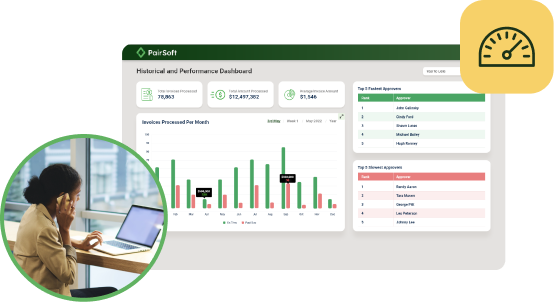
Wadih Pazos
Wadih founded both PairSoft and PaperSave. He is an avid technologist who specializes in streamlining operations and maximizing productivity.
View all posts by Wadih PazosWadih Pazos • October 1, 2021

Cloud enterprise resource planning systems are becoming prominent in the industry due to their great potential for workplace versatility and accessibility.
Forbes contributor Louis Columbus wrote in an article for Dell that manufacturers are now prioritizing cloud computing, and overall see it as a means to remain competitive with industry rivals. Columbus cited a Plex Systems study, entitled “The State of Manufacturing Technology,” that backed up this sentiment with numerical evidence based on answers provided by 130 surveyed manufacturers.
For example, 66 percent of manufacturers said that the use of the cloud has already improved business insights, while the same percentage said they are seeing improvement in plant productivity. Almost all of respondents—90 percent—said that their data security improved after adopting professionally managed cloud services.
In terms of mobile usage, 81 percent also indicated that having a scalable, secure cloud platform improved company-wide data accessibility.
What do these numbers means for the industry? Well, it’s pretty simple. Cloud computing, with specific regard to ERP systems, is going to continue to grow throughout the global manufacturing sector.
As companies expand beyond borders and integrate an international approach to business and production, cloud software will become even more important. Columbus noted that as the Internet of Things experiences further developments, manufacturers will likely begin to use it more prominently to regulate plant operations.
The future of the industry appears to be largely tied to this technology.
Now that it has become clear that the most effective way for manufacturers to stay competitive is to use cloud computing in a management setting, it is important to carefully strategize the best ways to go about doing so.
Lori Payne, who serves as Vice President of Manufacturing Development at KeyedIn Solutions, Inc., wrote in an article for Manufacturing.net that there are several key questions that must be addressed when implementing cloud software.
First, she said, you must ensure that the technology doesn’t change the way your business runs. Rather, it should assist you in enhancing the aspects in which you already excel. If it requires a complete reinvention of the way you operate, it probably isn’t worth using.
Payne referenced the significance of making sure that the software was designed specifically for manufacturers. Generic ERP systems are often made for broad usage, and can leave gaps in critical areas of functionality.
In order to most effectively use the cloud, you should make an original investment in a system that is customizable and tailored to your needs, rather than having to make this adjustment on the fly and devote more money to it down the line. If the software only meets 50 percent to 70 percent of your criteria, it probably is not your best option.
Cloud-based ERP systems are taking the place of traditional management systems in the manufacturing realm. This practice has become the industry standard in recent years, and it appears to only be scratching the surface of its market potential. Cloud computing is an essential part of remaining viable in an ever-evolving sector, and those who fail to adopt it will likely not be able to stay competitive.
While applying such a system is necessary for manufacturers, it’s also important to identify your company’s requirements. Using generic software will probably not help to streamline your production process, so finding a perfect fit for your needs is a key part of implementation.

